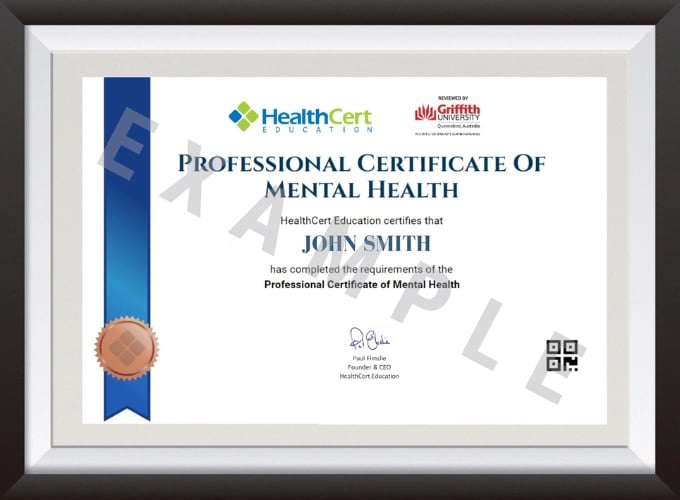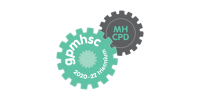This week we revisit a case from Dr Mazharul Islam, in which a 56-year-old lady presents for a...
.jpg?height=200&name=HCE%20HubSpot%20blog%20images%20600x350%20(32).jpg)
Learn how to identify and manage mental health issues in primary care.

Gain the knowledge required to provide evidence-based, patient-centred care to people living with a mental illness, including depression, anxiety, bipolar disorder, eating disorders, PTSD, domestic abuse, and depression in the elderly.
- Learn to diagnose and manage patients with mental health issues, identify and treat mental illnesses, and collaborate with other professionals to improve outcomes.
- Delivered by GPs with a special interest in mental health and reviewed by mental health professionals.
- This course is for medical doctors and International Medical Graduates and will enable you to meet the requirements for mental health MBS recognition.
- CPD-accredited and university-reviewed.
Fulfils 50 hrs for medical professionals in Australia*
100% online
$2095
Special rates available
81 hrs
Self-paced
*provided an outcome measurement activity with a minimum of 5 hours is completed.

- Meet patient demand, as people talk to their GP about mental health more than any other issue and the majority of mental health services in Australia are delivered by GPs.
- Evaluate and identify underlying mental health concerns with confidence.
- Provide advice and comprehensive care for your patients experiencing depression.
- Effectively assist patients struggling with anxiety and bipolar disorders.
- Provide comprehensive care to patients living with anorexia and bulimia.
This module introduces skills and techniques to detect, assess and review patients with mental health issues including screening under the Mental Health Better Access Initiative. It includes guides and examples of conducting effective mental health interviews and developing General Practice Mental Health Treatment Plans. The first unit provides an overview of Australia’s mental health care system including the epidemiology and aetiology of mental health. The list of mental health illnesses/disorders eligible under the Better Access initiative are outlined. This unit includes strategies to detect and assess mental health illnesses including recognition of physical and differential factors, and management of associated complexities and comorbidities. The process of reassessment and regular review of patients is provided. The second unit introduces shared understanding of mental illness with patients and the development of a mental health care plan (MHTP). Using screening and treatment evaluation tools, this section then describes how to detect early warning signs and relapse prevention. Self-help including when to use pharmacotherapy, evidence based psychological therapies, and optimum patient care through shared care, multidisciplinary communication and teamwork are discussed. The final unit focuses on risk assessment, progress monitoring and coordination of care to patients. Available resources, frameworks, local services and referral pathways to assist patients are listed. Case studies are used throughout the module to reinforce learning.
This module begins with an overview of the current statistics of depression in Australia along with the definition and causes of depression. The risk factors of depression and ‘at risk’ groups include carers, Aboriginal and Torres Strait Islanders, refugee, adolescents, elderly, perinatal depression and others are discussed in detail. The module then focuses on diagnosing depression through history taking, examination, investigations and using assessment tools such as Mental State Examination to confirm diagnosis. The final section outlines the different types of treatment of depression including lifestyle changes, psychological approaches, medication, other considerations and psychiatric referral. Several case studies conclude this module.
This module commences with the definition and epidemiology of anxiety disorders. Considerations for assessment, secondary causes, investigations, diagnosis and treatment using non-pharmacological and pharmacological approaches to anxiety are discussed. The content then focuses on generalised anxiety disorder, social anxiety disorder and panic disorder. The DSM-V and ICD-10 diagnostic criteria of these disorders include epidemiology, differential diagnosis, treatment, pharmacotherapy and psychological interventions. Other anxiety disorders are discussed including agoraphobia, specific phobia, separation anxiety, selective mutism, substance/medication induced anxiety, and anxiety disorder due to other medical conditions. Case studies are used throughout the module to reinforce learning.
The module commences with the history, epidemiology and aetiology of bipolar disorder. Three main types of this disorder are outlined including further classification and severity of current and recent episodes. Clinical features of symptoms, mania and hypomania, depressive episode, mixed episode, cyclothymic disorders and psychotic symptoms are discussed in detail. The third section focuses on psychiatric history, mental state examination and findings, Young Mania Rating Scale (YMRS) and the Bipolar Depression Rating Scale (BDRS). The content includes differential diagnoses and the challenges in diagnosing bipolar disorder in children and adolescents including how to catch a mixed episode. The principles of managing bipolar disorder and the management of hypo/mania, bipolar depression and mixed state are discussed. Course learning is reinforced with case studies. Pharmacotherapy including lithium and valproate dosage, drug interactions, adverse effects and risk are mentioned. The module concludes with information on diet, supplements and bipolar disorder patient support.
This module focusses on eating disorders including anorexia nervosa, bulimia nervosa, binge eating disorder and other specified feeding and eating disorders. The role of the medical practitioner is discussed including advocacy for changing societal norms and healthy lifestyle perspectives and targeting at risk individuals. High risk groups are noted. The module provides screening tools to be used in conjunction with behavioural, psychological and physical signs – a comprehensive list of signs for these categories are listed. Assessment information and guides are provided including when immediate referral is appropriate. Patient engagement may be challenging and the suggested approach by the clinician is included. Treatment goals and guidelines are given including suggested multidisciplinary team involvement, medical practitioner management, pharmacotherapy and eligibility criteria.
The first section of this module outlines the history and origins of post-traumatic stress disorder (PTSD). The different DSM-V diagnostic criteria of PTSD are included. Unit two discusses the keys to diagnosis of PTSD and describes treatment options including psychological treatments, medications and lifestyle measures. Self-help and managing other co-morbidities are included. A case study is presented to reinforce learning. The module concludes with discussion of how plant-based therapies and classical psychedelics have the potential to assist with the treatment of PTSD.
This module is recognised by the GPMHSC as a clinical enhancement module of the modular Mental Health Skills Training.
This module on domestic abuse reviews the definition and support mechanisms when patients present who are in a domestic abuse relationship. Statistics related to its prevalence and impact both worldwide and in Australia are listed. It discusses the role of general practitioners in responding, supporting and treating women who disclose experiences of domestic violence in a supportive, non-judgemental manner. Signs and symptoms to identify domestic violence including psychological and behavioural symptoms are outlined. Screening information and understanding the reasons why a woman does not find it easy to leave an abusive relationship are included. Techniques to provide a safe environment and how to respond to disclosures including follow up care and responsibilities are addressed. The module includes advice about the most effective response to patient disclosure both immediately and as part of a long-term plan for follow up, and continuing care, including information about available resources and support services.
This module begins with an overview of depression and the increasing higher levels of psychological distress for older people. The content includes information on understanding depression, depression categories and how the medical profession defines depression. It then moves to the causes of depression, risk factors for the elderly, and other causal factors including at-risk groups. The effects of depression and how they may be displayed are mentioned, then considers diagnostic information, screening and assessment tools. Assessing suicide risk, differential considerations and investigations are outlined. The GP Mental health Care Plan and treatment approach includes education, lifestyle changes, psychological and medication considerations. The module concludes with two clinical case studies.


Dr Christine Ahern has worked as a general practitioner in rural NSW since 1983, often with Aboriginal and Torres Strait Islander communities. Her special interests include women’s health and education.
Dr Ahern is a senior lecturer at Sydney University and has previously been the Director of Training for North Coast GP Training. In 2011 she was named the General Practice Education and Training Medical Educator of the Year, a prestigious national award. Dr Ahern holds a MBBS and FRACGP.

General practitioner
Dr Anoop Jalota is an experienced GP with international experience. He practises in Wollongong, since moving there from New Zealand, he is currently the Cluster Leader for the Central Illawarra area.
.png?width=143&height=143&name=Joe%20Kosterich%20(3).png)
Lecturer, Curtin Medical School
Dr Joe Kosterich is a general practitioner, speaker, author, media presenter and health industry consultant. He writes for numerous medical and mainstream publications and is a regular on radio and television. He is often called to give opinions in medico legal cases, is clinical editor of a medical magazine, adjunct professor (teaching) at UWA and a lecturer at Curtin Medical School.
Dr Kosterich has a special interest in plant-based therapiess, men’s health, chronic disease and mental health. He has self-published two books and maintains a website and blog with health information and commentary. Through all this, Dr Kosterich continues to see patients as a GP each week.


$2095
*provided an outcome measurement activity with a minimum of 5 hours is completed.
Bundle two courses and save 5%, or three courses and save 10% upon enrolment.
Talk to us about deferred payment options, registrar scholarships and special rates.
*For Australian residents only: Online course prices are shown exclusive of GST. If you are GST-registered, please enter a valid ABN at checkout to ensure GST is not applied. Otherwise, 10% GST will be added at checkout. View our FAQ for more information.


HealthCert courses have become the standard by which you gauge all others.
Dr K. Abolarinwa
Good courses with excellent speakers. I particularly enjoyed the case study scenarios which helped to integrate the knowledge gained.
Dr A. Tucker
This is the pathway to improve your confidence and evolve into the GP you aspire to be.
Dr S. Shinwari
| RACGP Activity Number | ACRRM Activity Number | Activity Title | Education Hours | Performance Hours | Outcome Hours | ||
|---|---|---|---|---|---|---|---|
| 447518 | 31105 | Depression in the Elderly | 447518 | 31105 | 6 | 6 | 0 |
| 455769 | 31188 | Domestic Abuse | 455769 | 31188 | 3.5 | 6 | 0 |
| 454899 | 30278 | Detection, assessment and review of Mental Health issues | 454899 | 30278 | 6.5 | 6 | 0 |
| 466266 | 32682 | Depression (General) | 466266 | 32682 | 5.5 | 6 | 0 |
| 466368 | 32711 | Anxiety | 466368 | 32711 | 5 | 6 | 0 |
| 466407 | 32713 | Bipolar Disorder | 466407 | 32713 | 6 | 6 | 0 |
| 466361 | 31356 | Post Traumatic Stress Syndrome | 466361 | 31356 | 6 | 6.5 | 0 |
| 807796 | 33014 | PTSD Outcome Improvement Activity | 807796 | 33014 | 0 | 0 | 8.5 |
| Total hours | 38.5 | 42.5 | 8.5 | ||||
View the CPD Hours for all HealthCert Education activities.
The purpose of outcome measurement activities is to improve your clinical confidence in managing an identified learning gap. Outcome measurement activities are not a requirement of our Professional Certificate of Advanced Certificate courses; they are a requirement for Australian CPD purposes.
HealthCert Education provides a variety of outcome measurements activities to suit your needs:
The Professional Certificate of Mental Health is for medical practitioners who wish to learn how to identify and manage mental health issues in primary care.
This course is for physicians and degree-qualified medical professionals. There are no prerequisites. Participants do not have to pass an IELTS test but, as the courses are delivered in English, proficiency in listening, reading and writing English is assumed.
Participants will require access to a computer/laptop, an internet connection and a basic level of technology proficiency to access and navigate the online learning portal.
The HealthCert Core Module and Clinical Enhancement Module in Mental Health are also part of this Professional Certificate, so practitioners who have completed either (or both) of these modules will receive RPL into this Professional Certificate course.
Further professionally recognised qualifications and prior studies may be recognised for entry into this course if the learning outcomes match exactly. Please ask a HealthCert Education Advisor for an individual assessment of your prior qualifications and experience.
This certificate course meets the minimum 50 hours CPD annual requirement across all three mandatory CPD activity types, provided an outcome measurement activity with a minimum of five hours is completed. You may use an optional HealthCert outcome measurement activity or develop your own.
Outcome measurement activities are not a requirement of Professional or Advanced Certificates.
Upon successful completion of the course requirements, course participants will receive the Professional Certificate of Mental Health and CPD hours.
This certificate course:
To learn more about the delivery of certificates in Australia and overseas, please visit our FAQs.
Professional Diploma Pathway
This course is the first stage of the professional diploma pathway. The full pathway is: Professional Certificate of Mental Health, Advanced Certificate of Mental Health (coming soon), Professional Diploma of Mental Health (coming soon).
Other courses in Mental Health
Learn to develop Mental Health Plans with the Mental Health Training: Core Module, or gain an introduction to PTSD with the Clinical Enhancement Module of Mental Health Skills Training: PTSD – Trauma and Stressor Related Disorders.
Postgraduate pathway for Mental Health
Graduates of the HealthCert Professional Diploma of Mental Health (coming soon) qualify for a scholarship into the Masters of Applied Clinical Psychiatry. These are online course from the UK designed for medical practitioners. Please contact our UK partner directly regarding this scholarship: https://www.diploma-msc.com/s/healthcert
This organisation is an RACGP-accredited CPD provider under the RACGP CPD Program.





Don't see your question? Explore other faqs or talk to us.
Fees will vary based on the program and study option selected (fully online vs online + optional practical workshop). Payments can be made upfront or in monthly instalments. Special rates and various payment options are available. GP registrars and doctors in training enjoy a scholarship of up to $500. Talk to us to learn more.
Completion of any HealthCert course or attendance at an event will enable you to access the HealthCert Alumni Program which includes:
HealthCert Education is pleased to issue digital credentials for alumni. Digital credentials are a permanent online record of your successful completion of a HealthCert course and are issued to all course participants in addition to PDF certificates. If you are based in Australia, you also have the option to order a hard copy of your digital certificate for a small additional fee.
The recommended study duration of this certificate course is 81 hours, which includes study of the pre-course activities and readings, online lectures, live tutorials, and online assessment. This self-paced course offers the flexibility of 100% online study in your own time, at your own pace, in your own home or office, with no mandatory face-to-face requirements. You are not required to be online at specific times but can view and replay video lectures at your convenience.
All HealthCert courses meet World Federation of Medical Education standards. This certificate course qualifies for CPD hours from the Royal Australian College of General Practitioners (RACGP) and the Australian College of Rural and Remote Medicine (ACRRM) in Australia. It is recognised by the Royal New Zealand College of General Practitioners (RNZCGP) in New Zealand. It is recognised by the Hong Kong College of Family Physicians (HKCFP) in China. It is a self-submitted activity in Dubai and the United Kingdom. It is a self-submitted activity through the College of Family Physicians in Canada. If you live or work outside one of the above-mentioned countries, please contact us on admin@healthcert.com to discuss whether this course can be recognised in your country.
Want to stay up-to-date with the latest case studies, podcasts, free video tutorials and medical research articles pertinent to primary care?
Our Education Advisors can assist you with any queries and tailor our education pathway to suit your current expertise, interests and career goals.